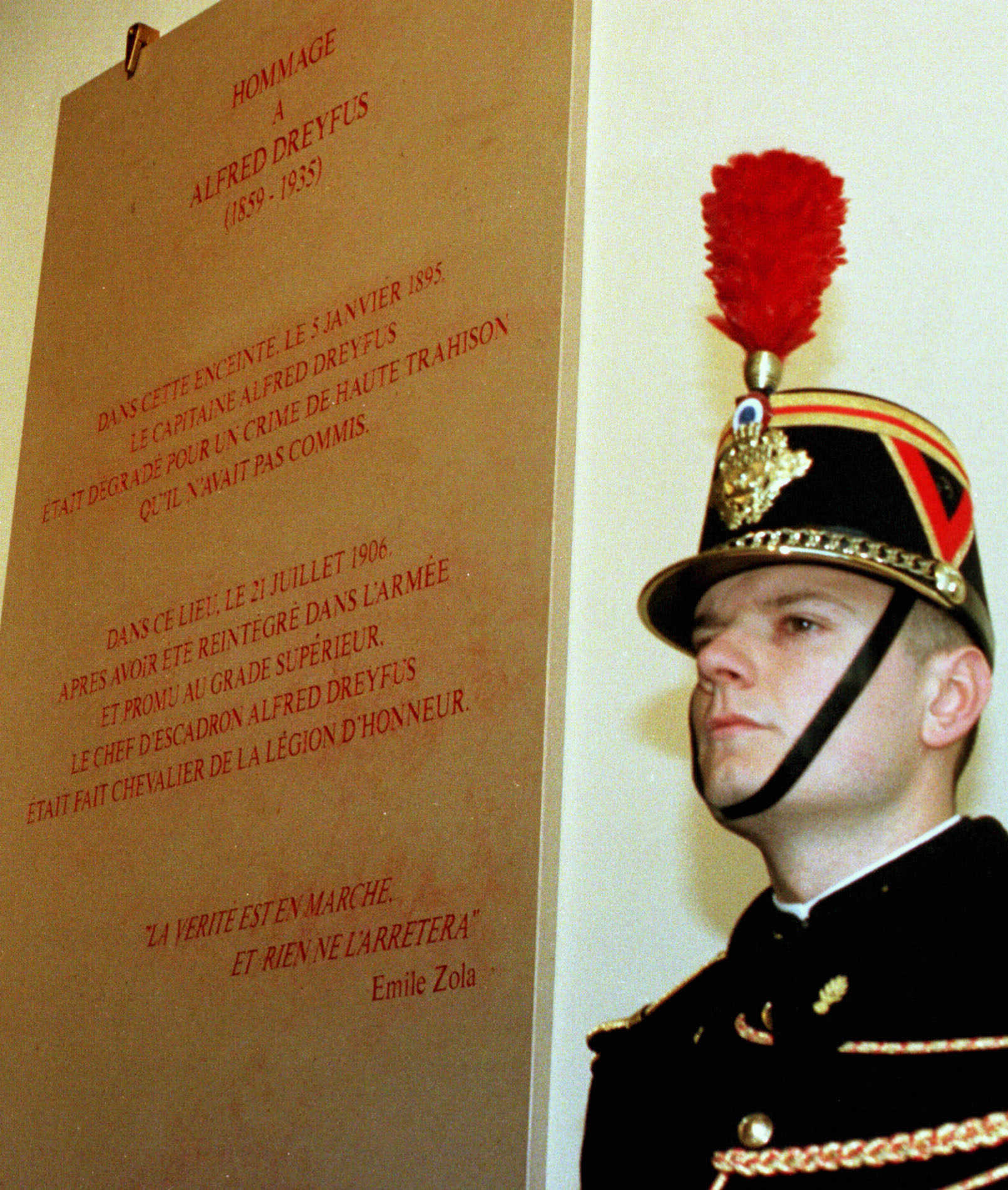It was the case that divided France into two irreconcilable halves at the end of the 19th century: the trial for espionage and treason of Alfred Dreyfus, the Jewish army captain accused of handing over secret documents to Germany. Initially sentenced to life imprisonment, he was later pardoned after the injustice of his case was proven, amidst intense public debate and outbreaks of violence and anti-Semitism that shook the foundations of the Third Republic.
"Accused, humiliated, and condemned because he was Jewish, Alfred Dreyfus was expelled from the army, imprisoned, and exiled to Devil's Island (in French Guiana)," recalled former Prime Minister Gabriel Attal on social media, the main promoter of the historical rehabilitation of the military figure. With the unanimous vote of the National Assembly, Dreyfus has just been posthumously promoted to the rank of brigadier general and may eventually be buried in the Pantheon of Paris, alongside war heroes.
"It was anti-Semitism within a part of the army, along with envy for his exceptional qualities, that weighed against him," recalled Macronist deputy Charles Sitzenstuhl, another key figure in the final chapter of the Dreyfus case. "There was also extraordinary pressure from the press and nationalist and anti-Semitic movements, which resulted in a trial without evidence and the absurd persistence of his accusation."
Biased media outlets like La Libre Parole effectively contributed to inflating the Dreyfus case and turning it, for a long decade (1894-1906), into the quintessential political issue. French society was literally divided into two camps: the dreyfusards (supporters of his innocence) and the antidreyfusards (defenders of his guilt).
The proverbial intervention of Émile Zola ("J'accuse...!") was ultimately decisive in tipping the scales. His open letter to the President of the Republic, accusing the government of anti-Semitism and illegal imprisonment, had a tremendous impact on public opinion and contributed to the case's review. Physically and mentally weakened by his confinement on Devil's Island, Dreyfus faced a second court-martial that, however, sentenced him again, this time to ten years of hard labor.
But President Émile Loubet finally granted him a pardon, and the Court of Cassation recognized his innocence in 1906. Alfred Dreyfus not only regained his freedom but also reentered the army as a commander and actively participated in World War I. He passed away in 1935 with his honor restored, but with wounds still open in French society and an impact that has endured to this day.
The Museum of Jewish Art and History recently dedicated an exhibition titled Alfred Dreyfus: truth and justice, open until the end of August. "Dreyfus was accused of treason mainly because he was Jewish", asserts curator Isabelle Cahn, supported by a collection of over 250 pieces that provide historical context and draw a striking parallel with the era of post-truth, based on media manipulations, political extremism, and power machinations.
The exhibition gives special prominence to his brother Mathieu Dreyfus, journalist Bernard Lazare, and Colonel Georges Picquart, head of counterintelligence, who in 1896 exposed the real traitor (Major Ferdinand Walsin Esterhazy) based on a handwritten note found alongside the secret documents handed over to the German government.
Colonel Picquart was, however, transferred to North Africa; the General Staff refused to reconsider its decision, and Major Esterhazy was acquitted after spending just one year in prison. Nevertheless, the sense of injustice in the Dreyfus case gradually permeated French society and led to a series of political and social demands driven by the so-called dreyfusistes. The case overflowed borders and sparked anti-French demonstrations in several foreign capitals.
"The anti-Semitism of the Dreyfus case is not a thing of the past and is equally relevant today", reads the text approved by the National Assembly, against the backdrop of an 11% increase in hate crimes, racism, xenophobia, or anti-religious acts in the last year in France, which is home to one of the largest Jewish communities in Europe.
"Thanks to your vote, the French Republic is going to correct an error that Officer Dreyfus had to endure until 1906, despite being exonerated," declared Deputy Charles Sitzenstuhl on the eve of this week's historic vote in the National Assembly. "The law we are passing is a unique initiative to resolve a unique situation. We are facing the symbolic recognition of a case without possible parallel in the history of our republic."
